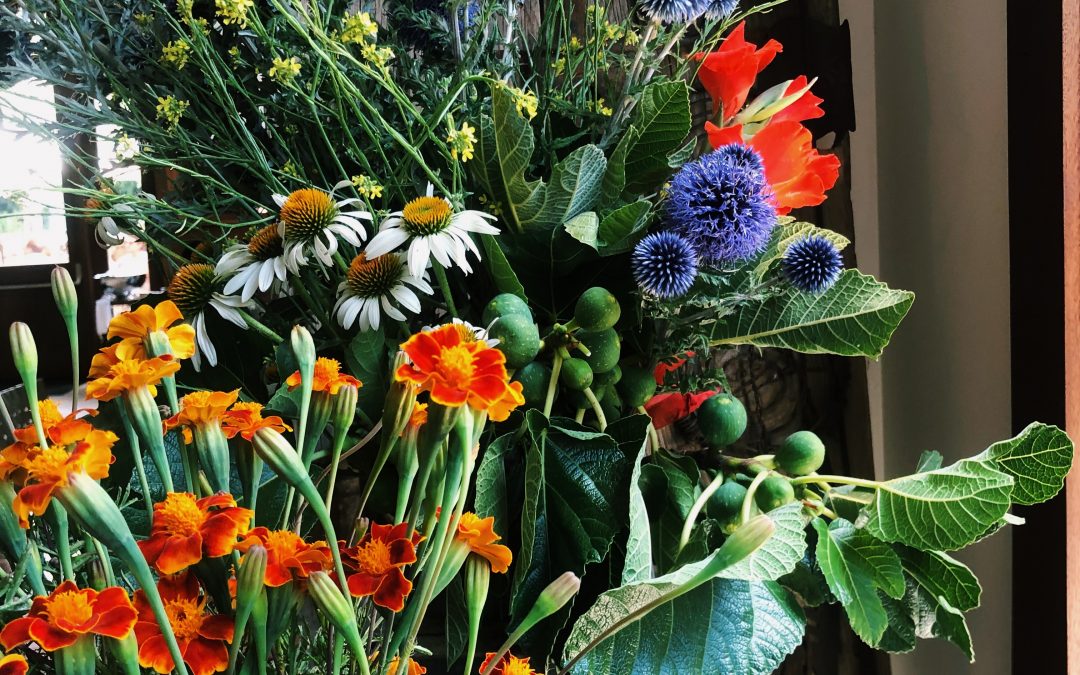Between mid-June and late July this year, I started to really feel it: an incoherent, rootless bone-tiredness that settled in and couldn’t be lifted. 15 months of pandemic endurance, and my defenses had finally crashed. I felt entirely depleted.
And I’m embarrassed to say that I essentially did nothing about it. We had hoped to go on a relaxing international vacation at the end of this month, only to renege with caution as the news cycle changed. We’re now re-evaluating our options of travel within the United States, but somewhat slow in making decisions.
The truth is, everything feels like more of a lift than it used to. Today at church, our pastor compared this experience to having 15 pounds added to your backpack— it doesn’t crush you, and you can still carry it, but you’re several levels more exhausted than you were before.
Many of us are carrying this additional weight. We worry about people all over the world who are suffering. We struggle with the reality of our planetary future. And perhaps most of all, we grieve the permanence of these challenges along with our human helplessness to solve them, at least on our own.
If you’re deeply empathetic and aware and sensitive, the world is a hard place to be alive sometimes. As for me, I feel extraodinarily, unreasonably lucky for all of the gifts I’ve enjoyed throughout my life and even during this moment in time. Simultaneously, I feel troubled and overwhelmed and heartbroken over poverty, injustice, and our stained earth.
When the external world isn’t changing
One thing I noticed about how we initially entered the pandemic, and other crises that emerged in our public consciousness in 2020, is the expectation that it was temporary. We thought that life would return to “normal.” That we would tackle systemic injustice and together overcome it. That the smoke from fires would go away and not return for a long time.
Instead, we are learning that we are not going back to 2019 ever again. We can only go forward, into a future that promises nothing but uncertainty. We have to learn to live here. We can’t count on our external world to shift to something more comfortable, accommodating our need for reprieve or our nostalgia for the past.
I’m not advocating that we all resign from social change, take what’s ours, and say “to hell with it”. I’ll admit that sometimes this is tempting; it may temporarily silence our deep yearning for restoration, but it doesn’t solve it.
What we need is to determine a healthy, holistic and embodied approach to doing what we can, releasing what isn’t ours, and giving ourselves permission to experience elusive levity and ease.
We don’t exhale because some troubling external circumstance has finally ended. We exhale because it is the other half of breathing, and we must keep breathing. In and out, in and out, gently and courageously into the challenges that await us.
Undemanding joy
At some point, all of us should take a pause from grinding and hustling, and find some time to come away. For we know we must come away for a while, or we will come apart after a while.
But if that isn’t something available to you right now, perhaps you can find undemanding joy at the smallest slice. Recently, I planted fresh herbs in clay pots and we use them to garnish our salads and infuse teas. I’ve been harvesting cucumbers and tomatoes and hot peppers from my dad’s garden, delighting in the best late-summer flavors. A daily walk in our neighborhood shows glimpses of the seasons changing yet again, promising cooler days and autumn colors.
There is no problem-free philosophy if we hope to take our place in the world, in its resilience and healing. So instead, we find sweet moments, however brief, that remind us that the earth is worth saving, humans are worth getting to know, and our labor is not in vain.

